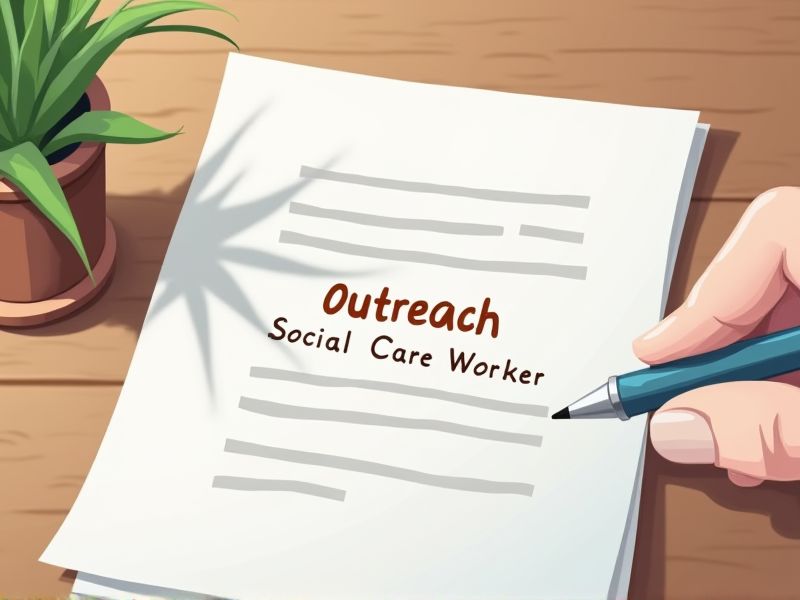
Outreach Social Care Workers require specific certifications to ensure they possess the essential skills and knowledge to support vulnerable individuals effectively. Certifications validate their competence in handling complex social situations and using appropriate interventions, crucial for building trust and offering reliable assistance. The certifications also keep them updated on current best practices and ethical standards within the social care sector. Here are some key certifications you might need as an Outreach Social Care Worker.
Certified Social Worker (CSW)
A Certified Social Worker (CSW) possesses the specialized training required to effectively assess and address the complex needs of individuals in community settings. Their expertise ensures the implementation of evidence-based interventions, which enhances the quality of outreach services. Without a CSW, outreach programs may struggle to design and tailor support plans that cater to diverse community needs. Their presence is crucial in maintaining the ethical standards and accountability necessary in social care work.
Licensed Clinical Social Worker (LCSW)
Outreach Social Care Workers often encounter complex cases that require the advanced expertise of a Licensed Clinical Social Worker, ensuring proper mental health assessments and interventions. LCSWs provide crucial supervision and training, enhancing the skillset of Outreach Workers to handle diverse client needs effectively. Their presence allows for the development of long-term, sustainable care strategies, reducing the likelihood of recurring social issues. Incorporating an LCSW into the team increases the access to resources for clients, optimizing the delivery of comprehensive social care services.
Certified Peer Specialist
Certified Peer Specialists bring lived experience, facilitating genuine understanding and trust that can enhance outreach efforts. This trust can lead to improved engagement rates among individuals who might otherwise feel alienated by traditional methods. Their unique perspective helps identify and bridge gaps in services, ensuring more holistic care. As a result, programs that integrate Certified Peer Specialists often see increased success in supporting individuals' recovery and well-being.
Certified Addiction Counselor (CAC)
A Certified Addiction Counselor is equipped with specialized knowledge that enhances an outreach social care worker's effectiveness in supporting individuals with substance use disorders. Their expertise allows for more accurate assessment and intervention, leading to improved client outcomes. A CAC brings techniques that address addiction's root causes, facilitating a more comprehensive approach to care. Access to their expertise helps bridge the gap between individuals dealing with addiction and the broader support systems.
Trauma-Informed Care Certification
Trauma-Informed Care Certification equips outreach social care workers with the skills to recognize and respond to signs of trauma in clients, which enhances the effectiveness of intervention strategies. This certification helps workers to create a safe and supportive environment, crucial for building trust with individuals who have experienced trauma. Understanding the impact of trauma on behavior and mental health allows for more personalized and empathetic care, optimizing client outcomes. Certification also ensures that workers adhere to best practices, reducing the likelihood of re-traumatization and fostering more positive long-term engagement with services.
Crisis Intervention Training (CIT) Certification
Crisis Intervention Training (CIT) Certification equips outreach social care workers with essential skills to de-escalate tense situations, reducing the risk of harm to both the individuals in crisis and the workers themselves. This training enhances the workers' ability to recognize mental health issues and align appropriate support services, which can improve overall client outcomes. By obtaining CIT Certification, outreach workers are better prepared to respond effectively in diverse scenarios, thereby increasing community trust and collaboration with law enforcement and healthcare providers. The certification also supports professional development, fulfilling a crucial role in the career advancement of social care workers.
Mental Health First Aid Certification
Mental Health First Aid Certification equips outreach social care workers with the skills to identify signs of mental health issues early, improving intervention and support outcomes. Research shows early detection and support can significantly reduce the severity of mental health crises. With this certification, workers are better prepared to de-escalate situations and can make informed referrals to mental health professionals. Enhanced knowledge and skills in mental health increase the worker's effectiveness in providing comprehensive care.
Case Management Certification
Case Management Certification equips outreach social care workers with essential competencies to effectively coordinate services, leading to improved client outcomes. Holding this certification often aligns with organizational standards and regulatory requirements, which can impact job security and career advancement. The structured training enhances critical problem-solving skills, facilitating better resource navigation for diverse client populations. Certification further elevates professional credibility, fostering trust and collaboration with both clients and interdisciplinary teams.
Cultural Competency in Social Work Certification
Cultural competency certification enhances an outreach social care worker's ability to engage with diverse populations effectively, resulting in improved service delivery and client satisfaction. Lack of cultural awareness can lead to misunderstandings, reducing the impact of interventions and support provided to clients from varied backgrounds. Certification ensures that social care workers are equipped with the necessary skills and knowledge to address cultural barriers, fostering trust and communication. As multicultural communities grow, the demand for culturally competent professionals in social work becomes integral to achieving equitable and inclusive care outcomes.
Community Responder Certification
The Community Responder Certification equips outreach social care workers with essential skills to effectively handle emergencies and crises. Certification ensures that workers follow standardized protocols, enhancing the safety and well-being of both the responders and the individuals they serve. With certification, social care workers can build trust within communities, as they demonstrate a verified competence in managing complex situations. Having a certified workforce can lead to improved outcomes and streamlined collaboration with other emergency services.
Summary
When you obtain certifications as an Outreach Social Care Worker, it directly enhances your professional credibility, opening doors to advanced job opportunities. Your certified skills lead to higher trust from clients and employers, improving job satisfaction. This recognition often results in increased responsibilities and potential for promotions. Employers value certified workers, motivating them to offer competitive compensation packages.
